Cost-Saving Money Hacks and Tips for Budget Travelers
Budget travel guru Will Hatton, an expert at traveling the world on just $10 a day, shares his tips and tricks for exploring the world on the cheap – with confidence.
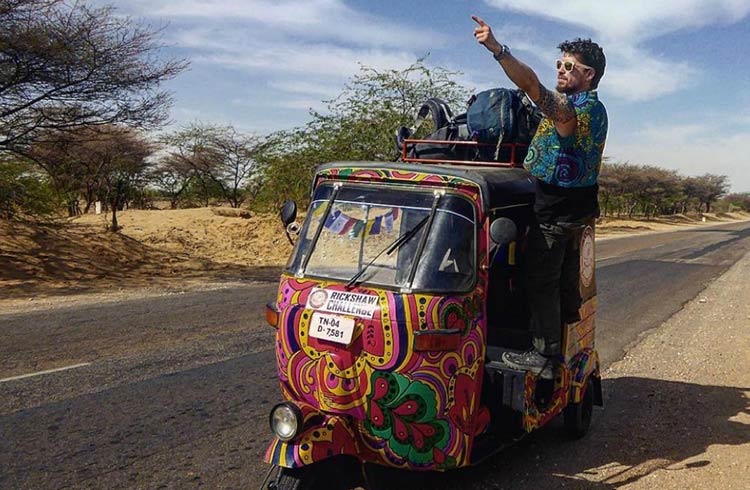 Photo © Will Hatton
Photo © Will Hatton
Hitting the road on a budget can be really intimidating if you haven’t done it before – but trust me, it’s 100% possible to travel the world without being rich!
- Sticking to a travel budget
- Cash vs. credit cards
- Keeping money safe
- Making conversions easier and exchanging money
- Top four tips for traveling on the cheap
Sticking to a travel budget
There are a lot of tricks and hacks you can use to stretch your money further, but it’s important to set yourself a rough budget when you travel so that you don’t suddenly run out of cash.
I tend to work on a weekly budget rather than a daily budget, as some days are always going to be more expensive than others. Often, I end up spending my weekly budget in the first four or five days, and then spend a couple of days living a tad more frugally. And that’s fine too – as long as you have a figure to work with for each week, or month, you can accurately estimate how long you can travel for before you have to pick up work.
If you’re hitting the road on the cheap, do yourself a favor and head to a country like Nepal, Iran, or Bulgaria, where your money is worth so much more than Australia, America or Western Europe.
While Australia, America and Western Europe are all truly incredible places to travel, they are not cheap and not as culturally diverse as, say, India. If you pick the right country, it’s possible to travel in style on even the tightest of budgets.
One of the best tips I can give you is to follow the example of the local average Joe.
Eat street food: it’s cheap, delicious, and nutritious – as opposed to eating in expensive restaurants aimed at foreigners.
Use local transport: rather than taxis or tourist-grade buses.
Make use of the sharing economy: Couchsurfing in particular is a fantastic way to save your cash, and you get to hang out with a local in their home country.
Most backpackers hitting the road will encounter three main costs – transportation, accommodation, and food. It’s possible to get all three of these down to zero if you know how – more on that later!
Cash vs. credit cards
In some parts of the world, such as Pakistan, it’s much simpler to carry cash on you rather than relying on bank cards. When I’m traveling, I always have most of my money in cash, hidden extremely well throughout my pack and on my person.
There are some cards out there which are better than others, HSBC offers zero banking fees in many parts of the world, and Charles Schwabb’ bank is the gold standard of any travel card – offering zero ATM fees all over the world – these guys will actually pay you back if the ATM itself charges you. Sadly, these accounts are only open to Americans.
Travel banking can be a bit of a head-spinner, but with more and more travel cash cards (like the Revolt card) hitting the market, the options for backpackers are improving.
Whatever you do, before you hit the road, be sure to inform your bank you’re heading abroad so that they don’t cancel your account when they see an unexpected transaction from the frigid mountains of Backpackistan.
Keeping money safe
If you're going to be carrying a lot of cash on you, you need to keep that money safe.
Over the years, I’ve hidden my money in my shoes, in specially-sewn pockets in my trousers, and even in between laminated photos of my family. Laminating two images together gives you a great way to hide cash, but it’s not perfect – you have to attack it with a pair of scissors to get to your money.
About a year ago, I came up with a much better way to hide large amounts of cash while traveling: a specially-made travel security belt.
Nope, I’m not talking about a bulky and obvious money belt, I’m talking about a mesh belt that looks very normal.
When you flip the belt, a zip on the back allows you to hide up to twenty folded notes inside. This is hands down the best way to hide large amounts of cash, and I’m fairly confident you could be robbed and patted down and it would still go unnoticed.
I always carry a dummy wallet with no cards and just a few dollars to hand over if I find myself in a dodgy situation, and this is a good tactic for keeping yourself safe.
Check out this post for several ingenious ways to hide your money when traveling.
Making conversions easier and exchanging money
In general, it makes sense to try and change your money with a bank rather than in an airport. Sometimes though, you can get a much better exchange rate on the black market.
Editor's note: That said, it is always better to be safe than sorry, as you'll always run the risk of receiving fake currency (what even is a bolívar supposed to look like?), illegitimately-gotten funds, or even harm to your personal safety. We hate to sound like your parents here, but be warned and stay smart!
Top four tips for traveling on the cheap
If you're hitting the road on a really tight budget, you need to cut down your basic costs so that you can spend your money on what counts – nutrition and fun!
1. Camp out or couchsurf
When I first hit the road, I did so with a couple of hundred bucks and a battered tent to keep me company. I camped all across Europe, in India, in Africa, in Central and South America, in The Philippines, Myanmar, Japan, Bhutan, and Iran.
I love camping and, best of all, it’s free. You simply rock up somewhere and pitch your tent, throw some beans on your stove, and watch the sun go down.
Whilst hostelling is a fantastic experience in itself, camping allows you to reconnect with nature, to disconnect from social media, and to learn some handy wilderness tools to boot. Picking up a decent backpacking tent was the best investment I ever made, and has saved me tens of thousands of dollars over the last ten years.
When I’m not camping, I often find a local host on Couchsurfing. This is also free, and is a fantastic way to land in a new town with a social life. Your host will often be keen to show you around and take you to places many other travelers may miss.
Some of my greatest adventures have been thanks to my Couchsurfing hosts. When you have a place of your own, don’t forget to give back to the community and host any travelers who may be passing through.
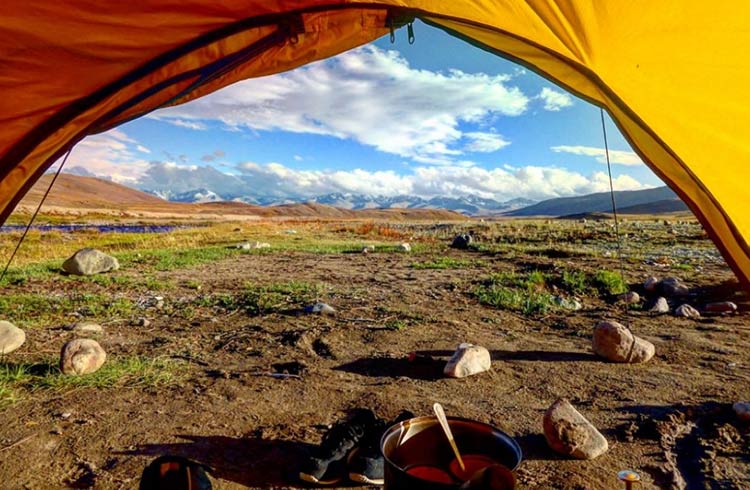
2. Hitchhike
Okay, I get it. The thought of hitching a ride with a stranger can be pretty intimidating! The first time I stuck my thumb out by the side of the road, I was pretty damn nervous. Years later, I’ve hitchhiked across all of Europe, Turkey, Iran, Pakistan, India, Nepal, and most of Southeast Asia.
I’ve had some truly incredible adventures through hitchhiking, and saved a ton of money as well. Check out hitchwiki for plenty of useful intel on where and how to get a lift.
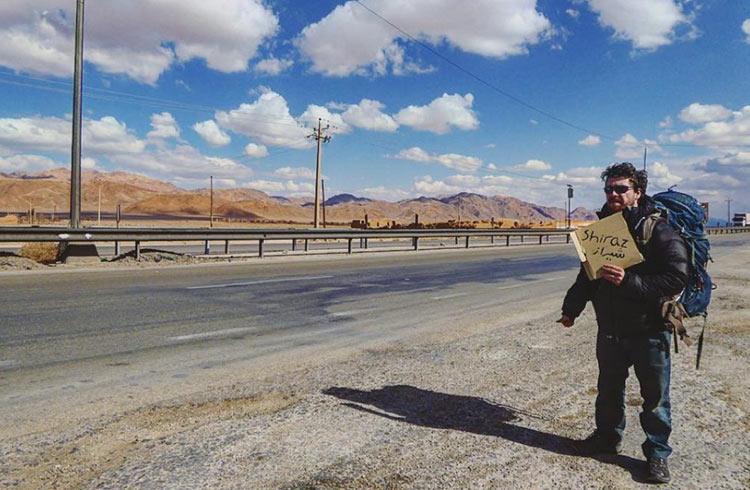
While hitchhiking does carry some risk, pretty much everything you do on the road has an element of risk. Risk management is the name of the game, and you can keep yourself safe by trusting your gut and, where possible, hitchhiking with a buddy.
If hitchhiking isn’t for you – no worries, I get it, although I think everybody should try it once in their lifetime. Instead, you should stick to local transport such as trains and buses.
Many countries, like India, offer extremely affordable transport for their citizens, and you can traverse the whole country with ease and on the cheap – the trick is to avoid the ‘luxury’ bus and train services offered to tourists.
Editor's note: Yup, us again. Just be aware that in some countries (or more specifically, motorways), hitchiking is illegal on roads where pedestrians are banned. This includes the Autobahn in Germany, Autostrade in Italy, or interstate highways in the United States. Make sure you check online on websites like hitchwiki and hitchbase before sticking your thumb out.
3. Eat local
Avoid plush tourist restaurants, which are often owned by international corporations. Instead, focus on spending your dollars where they count – with local people.
Local food is cheap, so you’ll save your pennies, and, most importantly of all, you’ll be contributing to the local economy on a grassroots level.
When picking a place to eat – try to find somewhere that’s busy with local people. You can bet your bottom dollar that food here will be delicious!
4. Volunteer
If you are traveling long-term, you will quickly discover that there is actually a lot of job opportunities for backpackers on the road. These are a great way to save up a quick bit of money – whether it’s working behind a hostel bar or helping out at a yoga retreat.
An even better way to cut down on your costs and to give something back is to pick up a volunteering gig. There’s a ton of volunteering placement companies online, although a lot of them are evil, for-profit, companies that will actually charge you hundreds of dollars for the privilege of volunteering.
To find free volunteering placements, many of which will provide you with room and board in exchange for your help, check out Workaway or HelpX.
There you have it amigos, just a few of the tips, tricks and hacks you need to travel the world on a budget with confidence!
I’ll see you on the road.
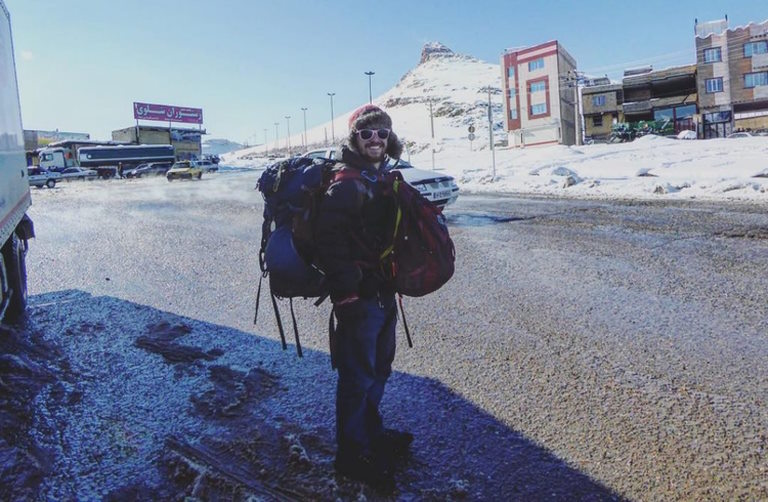
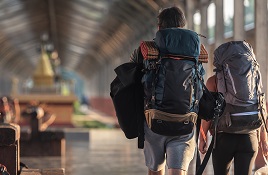
No Comments